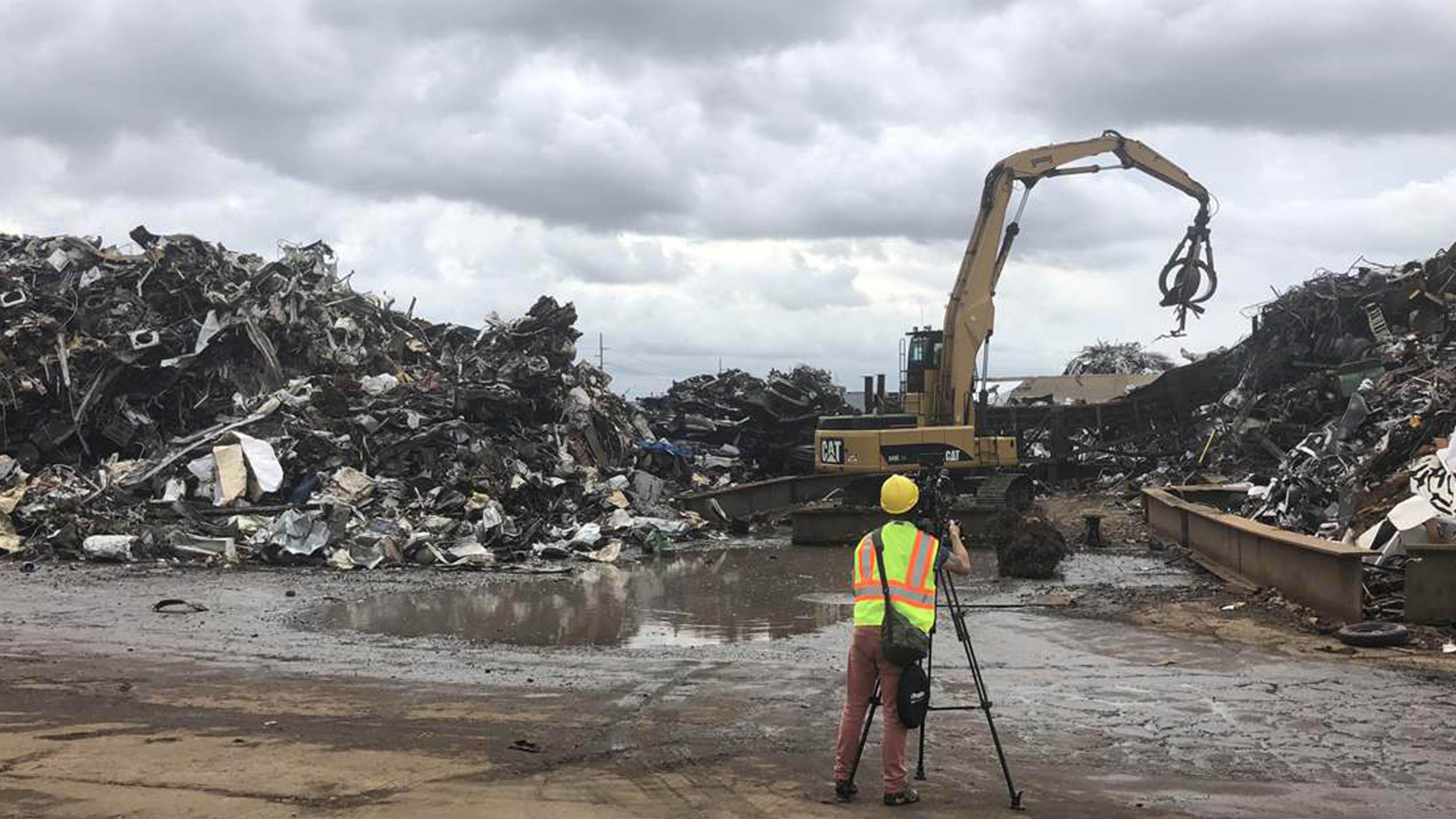
Business
17:05, 26-Sep-2018
Retaliatory tariffs strip US scrap metal industry profits
Updated
16:22, 29-Sep-2018
Dan Williams
03:01

The phrase "one man's trash is another man's treasure" could not be more apt for Michigan based waste recycling company Padnos.
The company dates back to 1905. Since then, the business has grown into a successful business employing 600 people across 18 locations.
Jeff Padnos is the Chairman of the company. He says the business has, over time, changed from being a rubbish dump to a waste recycling and conservation center.
The company has also enjoyed a long history of trade with China. Last year, the company sent 4,000 containers of scrap to China, by far its largest customer.
But then came the announcement in April that China had imposed retaliatory tariffs on US aluminum waste and scrap. By August, the tariff net widened to include all metal scrap commodities. “We're kind of the innocent bystanders walking along here and then all of a sudden it's like a brick falling off the ledge here and hits on the head,” says Padnos.
The US recycling industry trade group reports that the US exported a total of 5.6 billion US dollars' worth of scrap commodities to China last year.
Padnos believes the decision by the Trump administration to impose tariffs is a mistake. “We were shocked to see some people in our government thinking this is an easy thing and there won't be any retaliation. And we just said what are you thinking about, you are going to do something like that and there won't be a response.”
With the added tariffs, the price of US scrap metal recycling has slumped. It means auto suppliers and manufacturers that recycle excess metals are also being hit by lower scrap prices when they attempt to recycle the byproduct. With metal prices increasing because of tariffs, that is a further blow to steel and aluminum-using manufactures.
Padnos remains hopeful that a solution to the trade dispute can be found and business can return to normal. “If our customers lose, it is like us losing. Because you won't have that business again. And that is what happened. People talk about a term, win-win and sometimes lose-lose. I think we have the potential to create a lose-lose situation.”
That view is echoed by Jeffrey Bergstrand of the Mendoza College of Business at the nearby University of Notre Dame. “It is going to price us out of the market. And that is going to turn tend to hurt the Michigan economy in terms of numbers of jobs. I think that is going to be the biggest impact.”
The scrap trade between the US and China was a lucrative business. But that, for now at least, lies in tatters.

SITEMAP
Copyright © 2018 CGTN. Beijing ICP prepared NO.16065310-3
Copyright © 2018 CGTN. Beijing ICP prepared NO.16065310-3